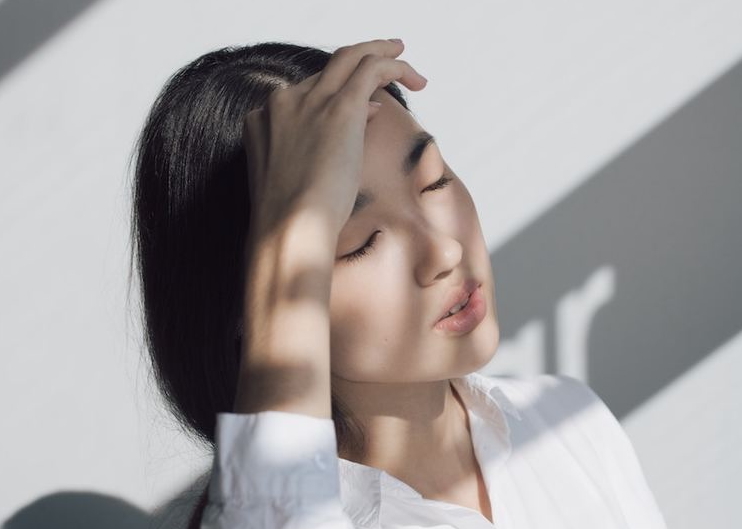Best acne treatment for Asian skin

When it comes to treating acne, there are various factors to consider to determine the best treatments for your unique skin. In addition to acne severity and skin type, ethnicity is also an important element. For example, Asian skin can be tricky to treat because it tends to be more sensitive than other skin types (both Caucasian and darker, African skin). As a result, products and cosmetics that work well for others can often be too harsh and irritating for Asian skin. Additionally, since Asian skin is more prone to hyperpigmentation (dark spots), proper acne treatment and prevention are even more important.
Best Acne Treatment Ingredients for Asian Skin
Certain acne treatments can be irritating for sensitive Asian skin, but two of the most effective ingredients—benzoyl peroxide and salicylic acid—are safe and effective when used in the right (mild) doses.
Salicylic Acid (up to 2%)
- What it does: Salicylic acid is a beta-hydroxy acid (BHA) naturally derived from willow bark. It helps unclog pores, clear pimples, blackheads, and whiteheads, and reduce inflammation. It also helps fade dark spots, a common concern for Asian skin.
Benzoyl Peroxide (up to 2.5%)
- What it does: Benzoyl peroxide is considered the single most effective topical anti-acne ingredient. It fights acne-causing bacteria, unclogs pores, and prevents future breakouts.
- Pro tip: Micronized benzoyl peroxide, with a smaller particle size, penetrates better and is less likely to irritate sensitive skin.
Pure Retinol (up to 0.5%)
- What it does: Retinol helps reduce comedones, prevent breakouts, minimize fine wrinkles, and fade dark spots.
- How to use: Start with 0.25% retinol, apply a small amount twice a week, and gradually increase frequency as your skin adjusts. After two months, you may increase to 0.5% retinol. Always use sunscreen when using retinol, as it increases photosensitivity.
Best Acne Cleansers for Asian Skin
People with Asian skin, especially those of Japanese and Korean descent, are more prone to irritation from harsh cleansers. Many acne cleansers that create a foamy, bubbly lather can damage the skin’s natural protective barrier (the stratum corneum), leading to more breakouts.
- Opt for cleansers that create a thin, creamy lather with minimal bubbles.
- Avoid alcohol-based cleansers and toners, which dry out the skin and trigger overproduction of oil, worsening acne.
Acne Ingredients to Avoid for Asian Skin
Since Asian skin tends to be more sensitive, avoid these harsh ingredients and treatments:
-
High-concentration retinoids (e.g., adapalene, tretinoin > 0.05%)
These can cause irritation and increase photosensitivity, raising the risk of hyperpigmentation. -
High-concentration AHAs (alpha-hydroxy acids > 10%)
These can strip the skin and lead to significant irritation. -
High-concentration benzoyl peroxide (> 5%)
This can irritate sensitive skin and worsen redness. -
Other irritants:
- Alcohol
- Citrus extracts
- Lemon oil (lemon juice is okay)
- Essential oils like peppermint, eucalyptus, and wintergreen
Preventing and Treating Dark Spots
Since Asian skin is more prone to post-inflammatory hyperpigmentation, early and effective acne treatment is key. To prevent and treat dark spots:
- Begin an acne treatment routine as soon as possible.
- Avoid excessive sun exposure and always wear sunscreen designed for acne-prone skin.
- Consider using a dark spot remover for existing discoloration.
The Connection Between "Asian Flush" and Rosacea
Some individuals of Asian descent, particularly from Korea, lack the enzymes needed to detoxify alcohol. This condition, known as Asian flush, can cause redness that mimics rosacea. If this sounds familiar, try reducing alcohol intake to see if your skin improves.
Haircare and Makeup Tips for Acne-Prone Asian Skin
Haircare
- Avoid foaming shampoos, and rinse thoroughly to prevent residue from irritating your skin.
- Apply styling products away from the face and wash them out before bed.
Makeup
- Choose mineral makeup labeled “oil-free,” “non-comedogenic,” or “for acne-prone skin.”
- If possible, reduce makeup use or go makeup-free to allow the skin to breathe.
Asian skin tends to be more sensitive than other skin types and does not respond well to high topical anti-acne medications. Therefore, if you have Asian skin and acne, you need to start as soon as possible with an effective anti-acne treatment that is personalized to your acne severity and skin type.
To find the right acne treatments for your unique skin, take the free skin assessment by clicking here.



